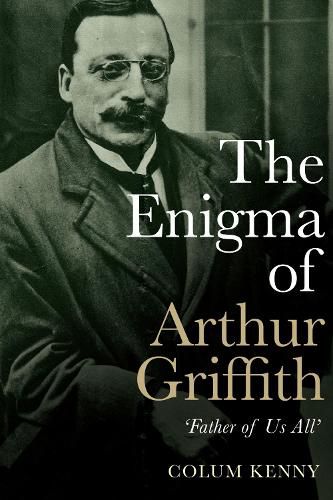Readings Newsletter
Become a Readings Member to make your shopping experience even easier.
Sign in or sign up for free!
You’re not far away from qualifying for FREE standard shipping within Australia
You’ve qualified for FREE standard shipping within Australia
The cart is loading…






Almost a century after his untimely death in 1922, this lively and insightful new assessment explores the man Michael Collins described as ‘father of us all’ and reclaims Arthur Griffith as the founder of both Sinn Fein and the Irish Free State.
Since his death when President of Dail Eireann, Griffith’s role has often been misrepresented. Too radical for some, he was not militant enough for others. His legacy belongs to no single political party today. Colum Kenny argues that efforts to ‘other’ Griffith as ‘un-Irish’ raise uncomfortable questions about Irish identity. A dedicated activist and intellectual, as well as a skilled editor and balladeer, Griffith knew what it meant to be poor. He encouraged women to get involved in the struggle for Irish independence, and, unusually for his time, distinguished between Oscar Wilde’s private life and his work. Griffith’s complex relationships with Maud Gonne, W.B. Yeats and James Joyce are revealed here in significant new ways. The Enigma of Arthur Griffith brings the ‘father of us all’ into focus for a new generation.
$9.00 standard shipping within Australia
FREE standard shipping within Australia for orders over $100.00
Express & International shipping calculated at checkout
Almost a century after his untimely death in 1922, this lively and insightful new assessment explores the man Michael Collins described as ‘father of us all’ and reclaims Arthur Griffith as the founder of both Sinn Fein and the Irish Free State.
Since his death when President of Dail Eireann, Griffith’s role has often been misrepresented. Too radical for some, he was not militant enough for others. His legacy belongs to no single political party today. Colum Kenny argues that efforts to ‘other’ Griffith as ‘un-Irish’ raise uncomfortable questions about Irish identity. A dedicated activist and intellectual, as well as a skilled editor and balladeer, Griffith knew what it meant to be poor. He encouraged women to get involved in the struggle for Irish independence, and, unusually for his time, distinguished between Oscar Wilde’s private life and his work. Griffith’s complex relationships with Maud Gonne, W.B. Yeats and James Joyce are revealed here in significant new ways. The Enigma of Arthur Griffith brings the ‘father of us all’ into focus for a new generation.